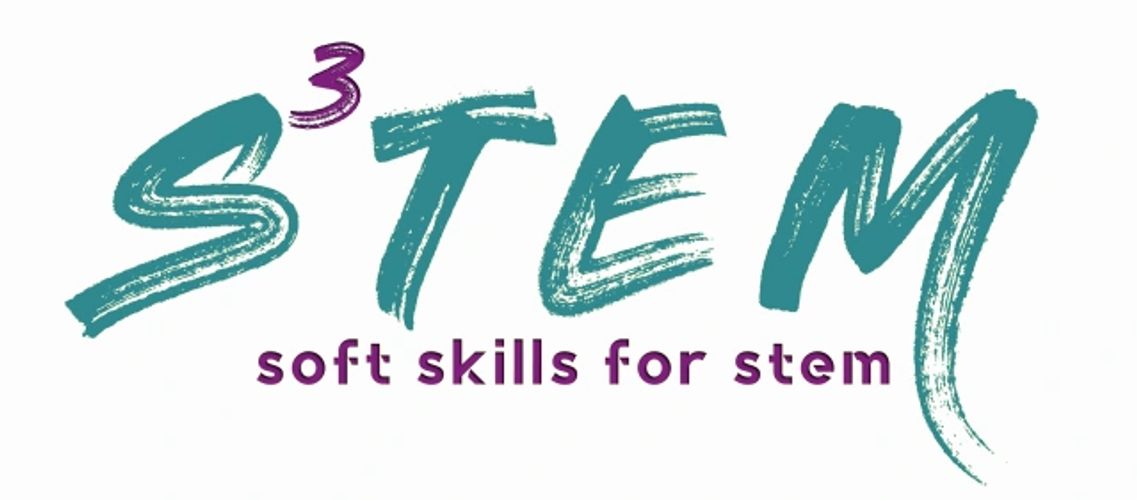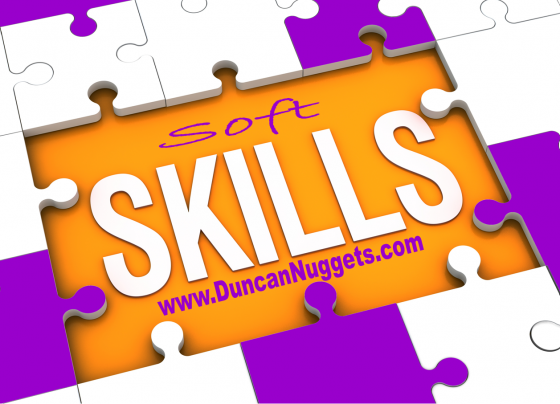MISCELLANEOUS TERMS RELATED TO SOFT SKILLS

List of Soft Skills Clusters (Beta – That means I’m still working on this. Thanks for you patience.)
Main Page of Soft Skills Clusters
(Sources listed at the bottom of main page.)
Decision Making & Problem Solving Skills
Teamwork & Collaboration Skills
Self-Management & Professionalism Skills
Leadership, Influence & Persuasion Skills
Related Terms
Action step: A vital key to goal achievement. The fundamental unit of progress for goal achievement. In addition to outcomes, goals should be measured in action steps.
Related terms: habits.
Tip: People tend to focus on outcomes instead of behaviors, which are actions. Most influence and behavior experts believe that this is a ineffective and suggest that the focus should be on specific behaviors and actions steps. That’s where improvement occurs.
Active Learning: A process whereby learners engage in activities, such as reading, writing, discussion, or problem solving that promotes critical thinking and the utilization of learning content.
Tip: Active learning is not a skill per se, it is, however, a crucial part of skills development. Active learning plays a role in hard skill and soft skill development.
Character Education (Character Development): Thus far, a universally agreed upon definition of character education has yet to emerge. Here is a definition from the U. S. Department of Education:
“Character education teaches the habits of thought and deed that help people live and work together as families, friends, neighbors, communities and nations.” –US Dept. of Education, Character Education…Our Shared Responsibility
Related terms: personal development, self-improvement
Tip: Character education is divided into moral character education and performance character education (performance values). The latter is the part of character education that directly relates to soft skills.
Coaching: A training or development process via which an individual is supported while achieving a specific personal or professional competence result or goal.
Related term: mentoring
Tip: Regardless of how successful they are, many top performers from all walks of life, seek some type of coaching in specific areas. The right coach is a powerful asset.
Competitive Advantage: The ability gained through your performance and your resources to thrive in personal and professional settings.
Tip: The term “competitive advantage” was originally a concepts relating to businesses and organizations. In order to make this valuable concept applicable to individuals, Al Duncan developed the concept of an individual’s competitive advantage from the original business concept. The definition that is listed is for individuals, not businesses.
Customer Service:
Deliberate Practice: to engage in a highly structured activity which provides immediate and effective feedback with the primary purpose of improving performance.
Tip: Be it hard skills or technical skills, skill acquisition and development, are significantly improved, and in many instances, only possible with deliberate practice.
Duncan Nugget® #176:
Exceptional performance is not the result of talent and “natural abilities”. Exceptional performance is primarily the result of exceptional practice.
Research shows that the quality of your practice is just as important as the quantity. Deliberate practice allows for repeated experiences in which you can attend to the vital aspects of the situation and incrementally improve your performance based on either results, feedback, or both from a coach/teacher.
In a paper titled “The Role of Deliberate Practice in the Acquisition of Expert Performance” (1993), Ericsson, Krampe, and Tesch-Romersaid concluded that:
“Only a few exceptions, most notably height, are genetically prescribed. Instead, we argue that the differences between expert performers and normal adults reflect a life-long period of deliberate effort to improve performance in a specific domain.”
Determination: firmness of purpose.
Related terms: diligence, grit, volition, willpower
Tip: Determination is more of a state of mind than a skill. It helps you to remain steadfast and use your skills even in the face of adversity.
Diversity: Learn from and work collaboratively with individuals representing diverse cultures, races, ages, gender, religions, lifestyles, and viewpoint.
Related terms: collaboration, teamwork, teambuilding
Ethics: moral principles that govern a person’s or group’s behavior.
Related term: character, integrity
Tip: Ethical behaviors such as honesty and integrity consistently rank in the top characteristics.
Executive Functions: an umbrella term for the management of cognitive processes, including working memory, reasoning, task flexibility, and problem solving as well as planning and execution.
Tip: Development of your executive functions is directly related development of the part of your brain called the prefrontal cortex. It does not fully develop until you are around 25 years old. Think about that.
Related terms: Cognitive control, self-regulation
Fail-Forward: Improving skills & increasing knowledge while experiencing failure.
Related terms: diligence, grit, perseverance, resilience
Global Competence:
Goal setting:
Interpersonal:
Intrapersonal:
Mentoring: The process of teaching and/or giving help and advice to a less experienced and often younger person.
Related term: coaching
Tip: Key leaders in business, philanthropy, government, religion, and education continuously laud the positive impacts of mentoring. And research justifies their praise and advocacy.
Regardless of the industry, great mentors are an excellent source of crucial, but often unknown, nuances and information about the skills necessary for the advancement of your career and personal development.
Motivation:
Networking:
Non-cognitive skills:
People skills: see soft skills (definition).
Performance values: see character education.
Personal Branding:
Personal Development:
Personality:
Philosophy:
Professional Development:
Pro-Social Behavior:
Positive Youth Development (PYD): The Interagency Working Group on Youth Programs, a collaboration of twelve federal departments and agencies of the U.S. government that support youth, has created a definition of positive youth development:
“Positive youth development is an intentional, pro-social approach that engages youth within their communities, schools, organizations, peer groups, and families in a manner that is productive and constructive; recognizes, utilizes, and enhances youths’ strengths; and promotes positive outcomes for young people by providing opportunities, fostering positive relationships, and furnishing the support needed to build on their leadership strengths.”
Related terms: youth development, youth empowerment
Tip: Although positive youth development is not a soft skill, it is a discipline that greatly values and heavily focuses on soft skills development.
Another definition of youth development that I have found helpful is from Karen Pittman, co-founder of The Forum For Youth Investment:
“…the ongoing growth process in which all youth are engaged in attempting to (1) meet their basic personal and social needs to be safe, feel cared for, be valued, be useful, and be spiritually grounded, and (2) to build skills and competencies that allow them to function and contribute in their daily lives.”
Self-Efficacy: A person’s belief in his/her ability to produce desired results by his/her own actions.
Related term: self-confidence
Emotional self-efficacy: a person’s belief that he or she possesses empathy and assertiveness as well as elements of social intelligence, personal intelligence, and ability emotional intelligence.
Related terms: Emotional Intelligence, social-emotional learning
Tip: “Self-efficacy is the foundation of human motivation and accomplishment. Unless people believe they can produce desired outcomes by their own actions, they have little incentive to act or persevere in the face of difficulties.” —Albert Bandura
Duncan Nugget® #52:
Motivation will only last if a person believes that there is a beneficial relationship between his/her behavior and his/her desired outcome.
Ways of Developing Self-Efficacy:
1. Mastery
2. Social modeling
3. Social persuasion
4. Managing physical and emotional states
Self-efficacy and self-esteem are often confused. Self-efficacy has to do with your beliefs about your abilities. Self-esteem has to do with your belief about your self-worth and value.
Self-Improvement: Be able to continuously acquire new knowledge and skills; monitor one’s own learning needs; be able to learn from one’s mistake
Self-Reflection: self-reflection is a process of giving serious thought to our lives and our decisions by examining our character, our actions and our motives and/or motivations. Sometimes we make decisions and then reflect on our choices, other times we reflect before making choices.
Related term: Self-Assessment
Social Responsibility: Demonstrate integrity and ethical behavior; act responsibly with the interests of the larger community in mind.
Social Emotional Learning: Social and emotional learning (SEL) is the process through which children and adults acquire and effectively apply the knowledge, attitudes and skills necessary to understand and manage emotions, set and achieve positive goals, feel and show empathy for others, establish and maintain positive relationships, and make responsible decisions. (CASEL)
Tip: Visit the Collaborative for Academic, Social, and Emotional Learning (CASEL) Also check out the SEL Parent Toolkit
Related term: Emotional Intelligence
Volition: the faculty or power of using one’s will.
Related terms: determination, willpower
Tip: Volition—also known as willpower—is a vital factor in determining how much effort an individual puts forth during deliberate practice or real performance.
Watch: Duncan Nugget® #256: Feeding Your Willpower (Research shows that glucose is the fuel of willpower.)
Willpower: see volition.
Youth Development: See Positive Youth Development
List of Soft Skills Clusters
Main Page of Soft Skills Clusters
(Sources listed at the bottom of main page.)
Decision Making & Problem Solving Skills
Teamwork & Collaboration Skills
Self-Management & Professionalism Skills
Leadership, Influence & Persuasion Skills
Related Terms







